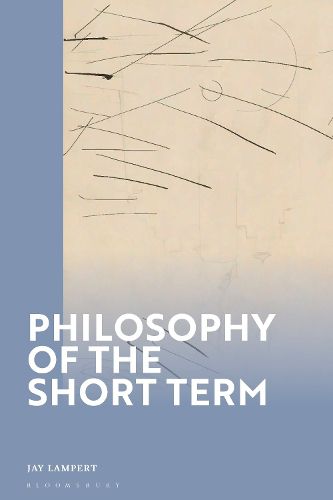Readings Newsletter
Become a Readings Member to make your shopping experience even easier.
Sign in or sign up for free!
You’re not far away from qualifying for FREE standard shipping within Australia
You’ve qualified for FREE standard shipping within Australia
The cart is loading…






The concept of the short term involves a complex network of quantitative, qualitative, and operational ideas. It is essential everywhere from the ontology of time, to the science of memory, to the preservation of art, to emotional life, to the practice of ethics. But what does the idea of the short term mean? What makes a temporal term short? What makes a time segment terminate? Is the short term a quantitative idea, or a qualitative or functional idea? When is it a good idea to understand events as short term events, and when is it a good idea to make decisions based on the short term? What does it mean for the nature of time if some of it can be short?
Jay Lampert explores these questions in depth and makes use of the resources of short (as well as long) term processes in order to develop best temporal practices in ethical, aesthetic, epistemological, and metaphysical activities, both theoretical and practical. The methodology develops ideas based on the history of philosophy (from Plato to Hegel to Husserl to Deleuze), interdisciplinary studies (from cognitive science to poetics), and practical spheres where short term practices have been studied extensively (from short term psychotherapy to short term financial investments). Philosophy of the Short Term is the first book to deal systematically with the concept of the short term.
$9.00 standard shipping within Australia
FREE standard shipping within Australia for orders over $100.00
Express & International shipping calculated at checkout
The concept of the short term involves a complex network of quantitative, qualitative, and operational ideas. It is essential everywhere from the ontology of time, to the science of memory, to the preservation of art, to emotional life, to the practice of ethics. But what does the idea of the short term mean? What makes a temporal term short? What makes a time segment terminate? Is the short term a quantitative idea, or a qualitative or functional idea? When is it a good idea to understand events as short term events, and when is it a good idea to make decisions based on the short term? What does it mean for the nature of time if some of it can be short?
Jay Lampert explores these questions in depth and makes use of the resources of short (as well as long) term processes in order to develop best temporal practices in ethical, aesthetic, epistemological, and metaphysical activities, both theoretical and practical. The methodology develops ideas based on the history of philosophy (from Plato to Hegel to Husserl to Deleuze), interdisciplinary studies (from cognitive science to poetics), and practical spheres where short term practices have been studied extensively (from short term psychotherapy to short term financial investments). Philosophy of the Short Term is the first book to deal systematically with the concept of the short term.